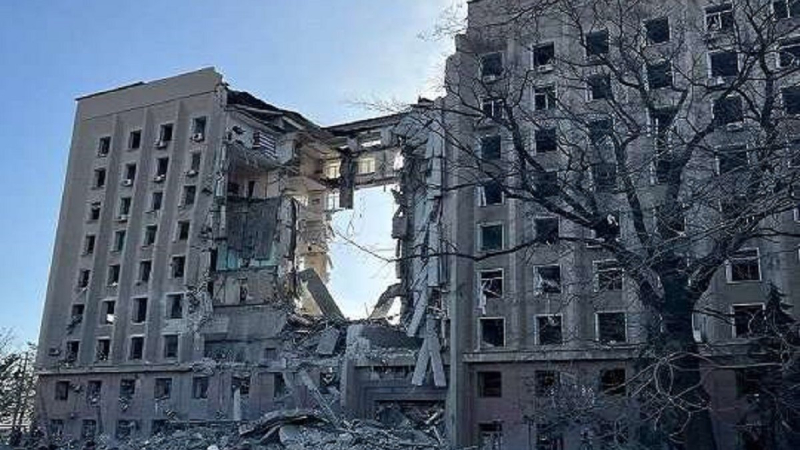
The war in Ukraine destroyed many state institutions/Commander-in-Chief
Wartime exacerbates people's expectations from the government, requiring the formation of a new system of civil service, which will be responsible for the current recovery and strategic development. Read more in the exclusive blog for the Channel 24 website.
Post-war lessons
Historical experience knows different cases of countries recovering from the war. For example, East Timor lost up to 7,000 civil servants after the end of Indonesian rule in 1999. This led to a total managerial vacuum, which is still felt there.
Or, for example, in Uganda, after the civil war in 1986, the state apparatus turned out to be incapable of transformation and drowned in administrative collapse. Since then, the phenomenon of “ghost civil servants” that existed only in payroll reports has become known.
At the same time, there are many positive examples. For example, the republics of the former Yugoslavia, having become independent countries, joined the European Union or are official candidates for membership.
Ukrainian Survival Course
The war in Ukraine is an extraordinary test for society. Social, economic, political. In the first difficult months, the country withstood its blows with dignity. Social obligations are fulfilled. Salaries, scholarships, subsidies, pensions are paid. To all citizens, including those who were forced to leave their homes or live in the temporarily occupied territories.
But questions of the country's strategic development are already emerging. The maintenance of the army, medicine and other protected budget items require the transformation of the state apparatus. In the context of a significant reduction in financial revenues, it is necessary to look for internal reserves. Including – due to organizational optimization.
In March, during the first sequestration, wage costs in the public sector were reduced by 10%. These funds were used for other expenses. Such a reduction is painful for the country and public servants who ensure its livelihoods. We also have children and families. But war drains the economy and requires sacrifice from everyone.
This sacrifice lies in the willingness to make tough decisions. Which strengthen the country and establish mechanisms for further development. The state becomes stronger when the costs of maintaining it correspond to current and strategic needs.
In conditions of war, human, financial and other resources must ensure the stability of the public service and the maximum quality of services to citizens. This is by no means about the surgical cutting off of part of the budget financing. First of all, we are talking about rational and justified public spending.
Public servants work directly with citizens in all areas of their lives – education, healthcare, public security. They must be effective, since trust in them determines the attitude of society towards the state.
Adaptation to war: life hacks of civil servants
At the National Agency for Civil Service, we have developed a methodology that allows any public authority to carry out a functional audit and prioritization. Thus, the level of departmental adaptation to the conditions of the war and the post-war period is determined. Are the internal processes organized correctly, are the funds spent efficiently, is the maximum result achieved.
The methodology allows the authorities to refuse unnecessary functions and expenses. Conversely, focus on providing services that people need. After all, in the conditions of war, some of the functions become redundant. Some require review or clarification. This is what our efforts are aimed at.
For example, now the issues of managing territorial bodies in the occupied territories look temporarily irrelevant. The personnel from there left for the regions controlled by Ukraine or are in idle mode, unable to perform their duties. Under such conditions, it looks like the right decision to save the cost of maintaining staff and office space.
I emphasize that we are not talking about the refusal of the state from the experience and knowledge of these public servants. Their energy is necessary for current activities and subsequent reconstruction of the country. It is only important to find the actual directions of its application.
For example, the importance of the sphere of migration management has increased significantly, given the mass movements of people. And the directions of infrastructural restoration and urban planning will gain weight over the years. So we will pay attention to these issues. And there – to direct the resources available to the state. In this way, we will avoid the risks that other states that have recovered from military conflicts have experienced.
The approach proposed by the National Civil Service Agency allows each agency to determine the number and professionalism of personnel required to carry out an updated list of tasks. The restoration of the country requires a new look at the management of social processes. In particular, in the format of the National Council for the Restoration of Ukraine from the Consequences of the War initiated by the President.
We started the functional audit with ourselves. We have already received results and are determining the course of changes in the National Agency for Civil Service. Further, we offer the methodology to all public service bodies. Both ministries and local self-government.
Our goal is to assist public authorities in providing citizens with only relevant and high-quality services. To form together a framework around which we will build a new public service in Ukraine.

